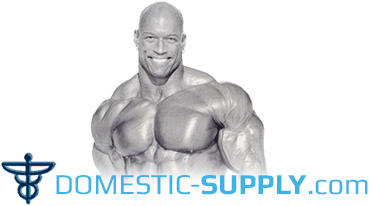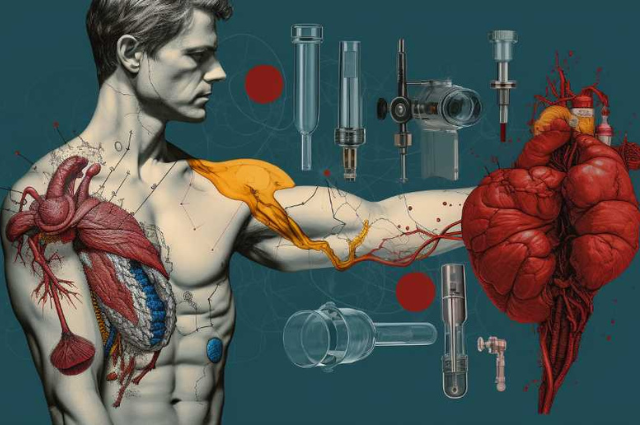What Is the Effective Treatment for Steroid Abuse Addiction?
The escalating concern of steroid abuse addiction necessitates a comprehensive exploration of its effective treatment strategies. This condition, marked by an uncontrolled use of anabolic steroids often to enhance athletic performance or physical appearance, has numerous detrimental physical and psychological effects. Proper diagnosis is crucial to initiate the necessary detoxification process, followed by cognitive behavioral therapy and medication-assisted treatments. A sustained recovery is achievable with robust aftercare and support networks. This article aims to delve into the intricacies of these strategies, providing a well-rounded understanding of the treatment for steroid abuse addiction.
Key Takeaways
- Detoxification is an important step in the effective treatment of steroid abuse addiction, as it helps eliminate steroids from the body.
- Cognitive behavioral therapy (CBT) is a valuable treatment strategy that helps individuals understand and manage the emotions, behaviors, and cognitive distortions associated with steroid misuse.
- Medication-assisted treatments can be used to address withdrawal symptoms and manage cravings in individuals with steroid abuse addiction.
- Robust aftercare and support networks are crucial for sustained recovery from steroid abuse addiction.
Understanding Steroid Abuse
Understanding steroid abuse involves comprehending the motivations, risks, and potential health repercussions associated with these substances. Steroids, primarily anabolic-androgenic steroids (AAS), are often misused by individuals seeking to enhance physical performance or appearance. This misuse can stem from societal pressures, personal insecurities, or an inherent desire to excel in athletic pursuits.
The risks associated with steroid misuse are numerous and potentially severe. Physically, users may experience cardiovascular issues, liver damage, and hormonal imbalances. Psychologically, misuse can lead to mood disorders, aggressive behavior, and even addiction. It is important to note that these risks can manifest after prolonged use or even in short, intense bouts known as "cycling".
The potential health repercussions of steroid abuse are equally as concerning. Long-term steroid abuse can lead to irreversible physical damage, including stunted growth in adolescents, male-pattern baldness, and in females, a deepened voice and increased body hair. Mental health issues such as depression and anxiety disorders may also develop, further complicating the individual's overall well-being.
It is crucial to approach the issue of steroid abuse from an empathetic and informed perspective. This includes recognizing its roots in societal pressure and personal struggles, understanding the complexities of its physical and psychological impacts, and acknowledging the necessity for comprehensive, personalized treatment strategies. By doing so, we can better support those struggling with addiction and work towards effective solutions for prevention and treatment.
Physical Effects of Steroid Addiction
The physical ramifications of steroid addiction manifest in a myriad of potentially life-threatening health complications. Steroids, when used chronically and inappropriately, can detrimentally impact nearly every organ system, leading to a host of adverse outcomes.
Central to these is cardiovascular risk. Steroids can induce hypertension, increase LDL (bad cholesterol), and decrease HDL (good cholesterol), thereby promoting atherosclerosis. This lays the groundwork for heart disease and stroke, both of which can be fatal. Furthermore, steroids can cause liver damage leading to cirrhosis or liver cancer, while also making the user susceptible to infectious diseases like HIV and Hepatitis if taken intravenously.
Steroids can also profoundly affect the endocrine system, disrupting the normal hormonal balance. For men, this can result in testicular shrinkage, decreased sperm production, and even breast development. Women may experience a deepening of the voice, menstrual irregularities, and increased body hair. Both genders may suffer from severe acne and hair loss.
Psychologically, steroids can induce mood swings, aggression, and depression. But perhaps most insidious is the potential for addiction itself. Steroids can trigger a potent psychological dependency, with withdrawal symptoms mimicking major depression.
Psychological Impact of Steroid Misuse
Bridging from the physical consequences, steroid misuse also inflicts significant psychological damage, further complicating the addiction treatment process. The psychological impact is multifaceted and can manifest in various ways, including mood disorders, impaired judgment, and aggressive behaviour.
The misuse of steroids has been linked to mood swings and increased irritability, often referred to as 'roid rage'. This condition can severely impact an individual's relationships, professional life, and overall quality of life. Additionally, steroid users may experience feelings of restlessness, anxiety, and depression, sometimes leading to suicidal thoughts.
Moreover, prolonged steroid use can lead to cognitive impairments, influencing the user's decision-making abilities and perception of reality. This distorted perception may result in risky behaviours, including continued steroid misuse despite adverse effects, unsafe sexual practices, or engagement in illegal activities.
In severe cases, steroid users may develop an addiction to these substances. They may experience intense cravings and continue to use steroids despite their harmful consequences, indicating a psychological dependence. This addiction can also lead to social isolation as individuals become preoccupied with acquiring and using steroids, neglecting personal and social responsibilities.
An empathetic understanding of these psychological effects is crucial in the treatment process. Therapies like cognitive behavioural therapy can help individuals understand and manage their emotions, behaviours, and cognitive distortions associated with steroid misuse. In conclusion, effective treatment for steroid abuse addiction requires an integrated approach that addresses both the physical and psychological aspects of this complex condition.
Diagnosis of Steroid Abuse Addiction
While it is crucial to address the psychological and physical aspects of steroid misuse, accurate diagnosis of steroid abuse addiction serves as the critical first step in the treatment process. It is a complex undertaking that requires a comprehensive approach, given the multifaceted nature of this condition.
A healthcare provider will typically begin with a detailed medical history, including an exploration of the individual's patterns of steroid use, the duration of use, the types and quantities of steroids taken, and any resultant physical or psychological symptoms. This interview process is essential to establish the severity and nature of the addiction, and it also provides an opportunity for the individual to speak openly about their experiences.
Physical examinations and laboratory tests are also vital in the diagnostic process. The healthcare provider may look for physical signs of steroid abuse, such as changes in body composition, skin conditions, or alterations in the reproductive system. Blood tests can reveal anomalies in hormone levels, liver function, or cardiovascular health, which may indicate chronic steroid use.
Psychological assessments are equally important. These may involve standardized questionnaires or interviews designed to uncover any underlying mental health conditions, such as depression or anxiety, which could be contributing factors to the misuse of steroids.
The diagnostic process for steroid abuse addiction is a careful, empathetic, and detailed endeavor. It aims not only to identify the problem but also to understand the specific needs and circumstances of the individual. This understanding is crucial in guiding the development of a personalized and effective treatment plan.
Role of Detoxification in Recovery
After a comprehensive diagnosis, the initial phase of treatment for steroid abuse addiction often involves a process known as detoxification. This paramount step is a medically supervised period of withdrawal, where the harmful substances are systematically and safely removed from the body, allowing the individual to transition into a state of recovery. The primary objective of detoxification is to alleviate the physical symptoms associated with steroid withdrawal, while preparing the individual for subsequent therapeutic interventions.
Detoxification is a sensitive process that necessitates a thorough understanding of the patient's health status, the type and duration of steroid use, and the presence of any co-occurring mental health disorders. A range of withdrawal symptoms, from mood swings and fatigue to depression and insomnia, can emerge during this period. These symptoms can be both physically and emotionally draining, hence the importance of a structured, well-supervised, and empathetic approach during detoxification.
The role of detoxification in recovery is indeed pivotal. It sets the foundation for further treatment by not only cleansing the body but also by initiating the mental shift needed for long-term recovery. Detoxification, when supplemented with psychological support, helps individuals confront their addiction, understand its root causes, and develop coping strategies to prevent relapse.
It is, however, crucial to remember that detoxification is not a cure for steroid abuse addiction. Instead, it is the first, essential step in a comprehensive treatment plan that often includes counselling, medication, lifestyle modifications, and ongoing support. By comprehending the role of detoxification in recovery, we can better appreciate its vital importance in the journey towards recovery and sustained sobriety.
Cognitive Behavioral Therapy for Steroid Abuse
Although detoxification is a crucial first step in treating steroid abuse addiction, it is Cognitive Behavioral Therapy (CBT) that often plays a transformative role in long-term recovery by addressing the psychological aspects of the addiction. CBT is a type of psychotherapy that helps individuals recognize and challenge unhelpful patterns of thought and behavior. This therapeutic approach is particularly effective in treating substance use disorders, including steroid abuse.
CBT for steroid abuse focuses on identifying the underlying reasons for the addictive behavior, such as body dissatisfaction or performance anxiety. It then aims to equip the individual with healthier coping mechanisms and decision-making skills. For instance, a person may learn to replace negative self-talk about their physical appearance with positive affirmations, or to manage stress through mindfulness techniques rather than resorting to substance use.
The process of CBT involves a collaborative approach between the therapist and the client. It requires active participation, honesty, and commitment from the individual undergoing therapy. The therapist provides a safe, non-judgmental environment where the client can openly discuss their fears, concerns, and goals. Over time, the individual learns to break the cycle of addiction and to develop healthier habits and attitudes towards their body and performance.
It is important to note that the effectiveness of CBT can vary depending on several factors, including the individual's readiness for change, the severity of the addiction, and the presence of co-occurring mental health disorders. Thus, a personalized treatment plan that incorporates CBT along with other therapeutic interventions may be the most beneficial approach in treating steroid abuse addiction.
Medication-Assisted Treatment Options
Complementing Cognitive Behavioral Therapy, medication-assisted treatment (MAT) serves as another effective strategy in managing steroid abuse addiction. This treatment approach combines prescribed medications and behavioral therapies to treat the whole person, acknowledging that addiction is a complex disease with both physical and psychological components.
MAT has been successful in treating addiction to opioids, alcohol, and tobacco, and its principles can be applied to steroid abuse as well. The aim of MAT is to normalize brain chemistry, block the euphoric effects of steroids, relieve physiological cravings, and normalize body functions without the negative effects of the abused drug.
Medications like Naltrexone may be used in MAT for steroid addiction. Naltrexone is an opioid antagonist that has been shown to reduce cravings and the desire to use steroids. It can also help with the withdrawal symptoms that many individuals experience when they stop using steroids, such as depression, fatigue, restlessness, loss of appetite, and insomnia.
In addition to pharmacological treatments, MAT also emphasizes the importance of counseling and behavioral therapies. These therapies provide a means for individuals to learn coping mechanisms, manage triggers, and build a supportive network to sustain recovery.
It's important to note that MAT is not a 'one-size-fits-all' treatment. The exact combination of medication and therapies must be customized to each patient's needs. However, when utilized correctly, MAT can be a powerful tool in the fight against steroid abuse addiction. Treatment professionals must always approach patients with empathy and understanding, recognizing the courage it takes to seek help and the strength required to maintain recovery.
Importance of Aftercare and Support Networks
In the journey towards recovery from steroid abuse addiction, the role of aftercare programs and supportive networks is crucial. These structures not only help maintain abstinence but also aid in rebuilding a healthy, productive life outside the sphere of addiction. The value of aftercare and support networks cannot be overstated as they provide a safety net during vulnerable periods and foster personal growth and development.
- Consistent Monitoring and Accountability: Aftercare programs involve regular check-ups to monitor the individual's progress. These check-ups can identify any potential triggers or relapses, thereby ensuring early intervention. The accountability provided by these programs can significantly assist individuals in maintaining their commitment to recovery.
- Emotional Support and Encouragement: Support networks, which may include family, friends, or support groups, provide crucial emotional backing. They offer encouragement and understanding, which can be immensely beneficial in the face of challenges that come with recovery. Moreover, these networks can help the individual feel less isolated, fostering a sense of belonging and mutual aid.
- Skill-Building and Personal Development: Aftercare often includes therapeutic activities and workshops aimed at building coping mechanisms, enhancing life skills, and promoting personal growth. These activities can help individuals deal with stress and avoid resorting to substance use as a coping mechanism.
Frequently Asked Questions
What Is the Estimated Prevalence of Steroid Abuse Addiction Worldwide?
The estimated prevalence of steroid abuse addiction worldwide is challenging to ascertain due to underreporting and varying definitions of misuse. However, studies suggest that up to 3% of the general population may misuse anabolic-androgenic steroids, with higher rates among gym attendees and athletes. This highlights the significant public health issue steroid abuse represents, necessitating prompt attention and comprehensive strategies to address this growing concern.
Are There Any Specific Age Groups or Populations More Susceptible to Steroid Abuse Addiction?
Research indicates that steroid abuse addiction is more prevalent among specific groups, particularly in teenagers and young adults involved in sports. Males are generally more susceptible than females due to the perceived benefits of increased muscle mass. Additionally, certain professions such as bodybuilding and other performance-enhancing sports have higher rates of steroid abuse. Nevertheless, it's important to note that anyone can become addicted, regardless of age, gender, or profession.
Are There Alternative Treatments for Steroid Abuse Addiction Apart From Detoxification and Cognitive Behavioral Therapy?
Yes, there are several alternative treatments for steroid abuse addiction aside from detoxification and cognitive behavioral therapy. These may include medication-assisted treatment (MAT), contingency management interventions, and 12-step facilitation therapy. The choice of treatment depends on the individual's specific needs and circumstances. It is crucial that treatment plans are personalized, as the effectiveness of any treatment can significantly vary from person to person.
Can Steroid Abuse Addiction Lead to Other Forms of Substance Abuse?
Yes, steroid abuse addiction can potentially lead to other forms of substance abuse. Individuals abusing steroids may resort to using other substances to manage the side effects of steroids or to enhance their effects. This can result in polydrug use, increasing the complexity of the addiction and the challenge of treatment. Therefore, it's crucial to address steroid abuse addiction promptly to prevent the escalation to multiple substance dependencies.
How Does Steroid Abuse Addiction Affect a Person's Ability to Work or Maintain a Stable Job?
Steroid abuse can significantly impact an individual's work performance and job stability. Chronic use leads to physical and psychological changes such as mood swings, aggressive behavior, impaired judgment, and depression, which can affect job performance and interpersonal relationships at work. Physically, long-term steroid abuse can cause severe health issues like kidney and liver damage, which may lead to frequent absences or inability to fulfill job responsibilities. Each case is unique and requires individual assessment.
Conclusion
In conclusion, steroid abuse addiction is a serious condition with severe physical and psychological impacts. Effective treatment involves a multi-faceted approach including diagnosis, detoxification, cognitive behavioral therapy, medication-assisted treatment options, and consistent aftercare and support networks. Each step is crucial in the recovery journey, with the ultimate goal of helping individuals regain control over their lives and establish a sustainable, healthy lifestyle free from the grips of addiction.









